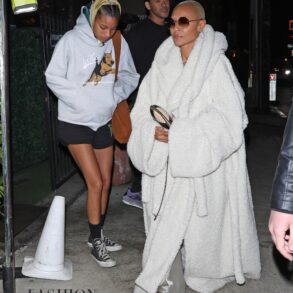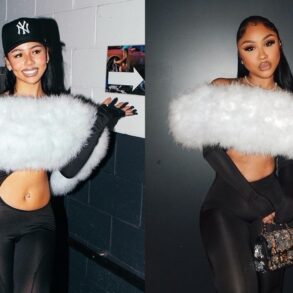Joe Budden may have released four unanswered Drake disses in 2016, but he doesn’t seem to hate Drizzy today; he just wants more from him. So when Budden used his self-titled podcast to passionately pick apart Drake’s new album For All The Dogs on the weekend it dropped, he insisted it came from an earnest place. “[Drake is] rapping for the children,” he said. “You’re gonna be 37 years old. Get the fuck away from some of these younger niggas, and stop fucking these 25-year-olds.” Budden added, “You’re a 37-year-old billionaire.” And while some Drake supporters had his back, plenty of listeners agreed with Budden’s criticism — it’s been a complaint that’s followed Drake for years. Regardless of how you feel about For All The Dogs, how reasonable is Budden’s request? Is it fair to ask artists to bring maturity to their music as they grow older?
Many of the greatest artists have found ways to grow from album to album, either sonically or topically. Kanye West is arguably the gold standard sonically, with each album of his taking on a new sound. Jay-Z, Nas, Snoop Dogg, and on the younger side, Kendrick Lamar, Tyler The Creator, and J. Cole have all exhibited growth in their music. Meanwhile, artists like Pusha-T who aren’t known for making such drastic changes keep things fresh with scarcity — longer lapses between albums, leaner tracklists. Others do the opposite: they flood DSPs with so much music that fans are satisfied as long as they’re consistently getting a few songs they like at intervals that matter. Either way, it’s up to the artists to keep things exciting for their audience. And in such a youth-driven genre, that can lead to difficult decisions. Should artists hold onto young fans as long as they can (in Drake’s case, at a historically efficient level), or take leaps of faith and deal with the consequences?
For what it’s worth, Drake seems to recognize the need to keep things interesting. He presented his 2017 project More Life as a “playlist” instead of an album or mixtape. He’s made joint albums with Future and 21 Savage. His 2018 album Scorpion featured “March 14,” a song about how the joy of fatherhood was weighted by stigmas of single parenting and how he used to resent his own folks for splitting up. And 2022’s Honestly, Nevermind was his biggest switch-up yet, as he tried out house and dance music for an entire album. But by Drake standards, the latter earned his most lukewarm reception. Maybe he’s cynical and realizes that inconsequential growth won’t jeopardize his success; maybe he thinks his more substantial risks didn’t get the credit they deserved; or, maybe he’d rather just grow at his own pace instead of listening to fan demands.
Ultimately, while it’s normal for fans to want their favorite MCs to reflect their own experiences or desires, it’s the artist’s decision — all fans can do is vote with their wallets (err, clicks).
Do the Knowledge: Author Sowmya Krishnamurthy’s new book, Fashion Killa: How Hip-Hop Revolutionized High Fashion, uses interviews with fashion leaders to show the connections between hip-hop artists and luxury design.
The Listening: Wiz Khalifa is an interesting case: he climbed through the rungs of the music industry with floundered record deals and the mixtape grind, but it seems like once he reached superstar status, he ventured so much into pop sounds that his rap audience stopped taking him seriously. Khali Sober, his second mixtape of 2023, shows that he still has a great ear for beats (this whole tape is handled by frequent collaborator Big Jerm) and astute understanding of how to approach them. Check “Would Be Muggers.”
They Reminisce Over You: In fall 1993, Black Moon released their classic debut Enta Da Stage. Buckshot’s subdued, sinister rhymes and Da Beatminerz dusty, nocturnal transformations of jazz samples made for some of the most compelling hip-hop in a year that was already packed with a genre experiencing one of its all-time peaks. Check the seminal “How Many MC’s” and the entire album while you’re at it.








